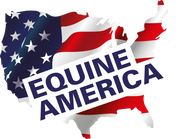Laminitis After A Wet Winter & Covid-19

2020 into 2021 has been one of the wettest winters we have experienced in a long time! Now the days are warming up and the daffodils are sprouting, this means the spring is coming! With the sun shining on the grass all day sugar volumes will begin to increase. Grasses will not have converted the sugar they synthesise during the day into fibre for growth overnight. This means the grass will remain high in sugar in the day. The sugar rich grass will stimulate an insulin response that can cause Laminitis.
Any horse, pony or donkey can get Laminitis, but especially the ones that are overweight!! They carry a higher risk because they are more likely to be insulin resistant and will therefore produce more insulin.
An interesting article in the horse and hound:
A recent Horse & Hound article warned that Coronavirus measures could lead to increase in laminitis.
https://www.horseandhound.co.uk/news/coronavirus-measures-could-lead-to-increase-in-laminitis-711340
World Horse Welfare CEO Roly Owers said it is imperative to remember laminitis is an issue all year, not just in spring. “The pandemic is creating huge challenges, not least how we manage and care for our horses. For many the best course of action could be to turn their horses out to grass and, of course, we certainly need to be mindful about the risk of laminitis,” he told H&H.
A fantastic support product from Equine America:
Lamigard Advanced Care Pellets deliver a unique approach to the nutritional management and metabolic support for horses and ponies prone to laminitis. Lamigard Advanced Care pellets are low in sugar and starch, high fibre, easy to feed and suitable for horses and ponies on very low, or no other concentrate feed, and provide:
- Potent Antioxidant support from key vitamins and minerals, as well as plant-based extracts
- Pre and Probiotics for hindgut support, as well as an MOS (mannan oligosaccharide) to bind undesirable microbes, and take them out of the gut
- A combination of minerals and plant extracts including magnesium and cinnamon to support the endocrine (insulin) system
- Folic acid to support the vascular system
- High levels of biotin, plus MSM and zinc to support hoof quality and growth
Historically, most laminitis cases were thought to be caused as a result of an inflammatory response, from over consumption of pasture and other feeds which are high in soluble carbohydrates, leading to a disruption to the hindgut microbiome, which caused the release of endotoxins, and the excessive production of free radicals from oxidation.
The actual physiological responses which lead to laminitis are still unclear, but it is thought that the inflammatory response and the high level of damaging free radicals produced by oxidation during the inflammatory response ultimately affect blood supply to the feet. The restriction of blood to the feet causes damage and death to the laminae, resulting in pain and lameness, and in severe cases, rotation of the pedal bone.
Excessive concussion of the feet, retained placenta in broodmares, systemic infections and supporting limb (following an injury) laminitis are also all thought to result in laminitis as a result of Systemic Inflammatory Response Syndrome (SIRS) - Laminitis caused by inflammation and resulting oxidative damage. However, recent studies have reported that a high proportion of laminitis cases are now thought to occur as a result of Endocrine or hormonal dysfunction. These hormone imbalances can occur either as a result of PPID (Pars Pituitary Intermedia Dysfunction, commonly known as Cushings Disease), or a range of syndromes referred to as Equine Metabolic Syndrome or EMS. These disorders are characterised by, amongst other symptoms, insulin resistance (IR) and maybe be genetic in origin, as there seems to be a high incidence in Native ponies and some draft breeds.
Again, it is not yet fully clear why higher than normal insulin levels can result in laminitis, but one theory is that insulin resistance may be associated with high levels of key proteins which cause vasoconstriction or narrowing of blood vessels in the feet. This is thought to result in narrowing and stretching of the lamellar cells over a period of time, before symptoms of pain and lameness become obvious to the owner – unlike SIRS laminitis, which is usually rapid in onset.
Lamigard Advanced Care pellets contain a potent blend of key nutrient and plant extracts to help in long term nutritional management of horses and ponies prone to both SIRS laminitis and those with endocrine dysfunction.
Be one step ahead with Equine America!
 Skip to content
Skip to content

